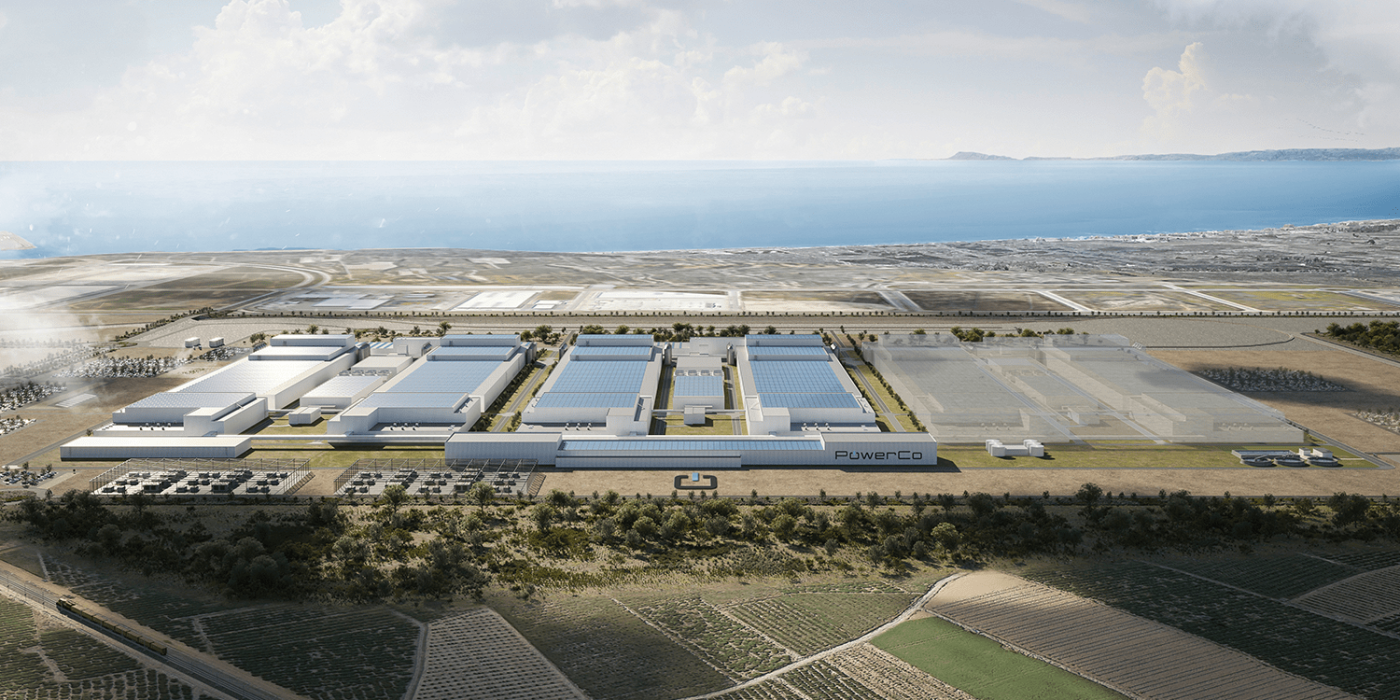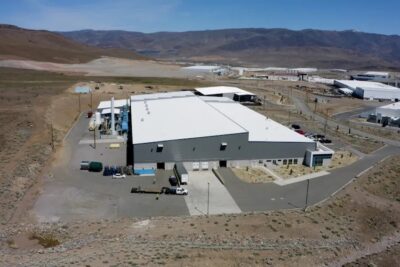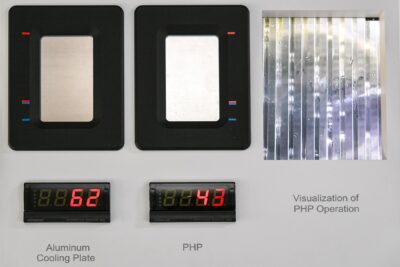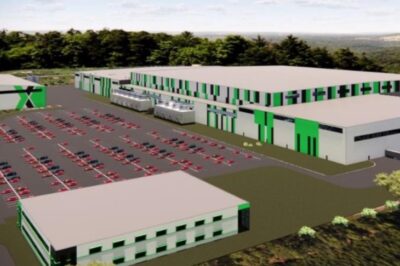VW starts battery plant construction in Valencia and plans third party sales
Volkswagen has now officially given the go-ahead for the construction of the second battery cell factory of its subsidiary PowerCo in Valencia. Volkswagen is also said to be considering stakes in raw material mines and the sale of its battery cells to other customers.
First to Valencia: The key data of the gigafactory design there were already known before, and are now confirmed. Construction of the battery plant will start as planned in the first quarter of 2023, the annual production capacity for manufacturing the ‘unit cell’ is expected to be 40 gigawatt hours, the site will create more than 3,000 direct jobs and production will start in 2026. However, Volkswagen now, on the occasion of the start of construction, also mentions that the manufacturing facility could be expanded to 60 GWh and that up to 30,000 indirect jobs would be initiated with suppliers and partners in Spain.
The cell factory itself will be located in Sagunt – in the immediate vicinity of Valencia on an area of around 130 hectares. Together with the planned supplier park, which will be built parallel to the PowerCo factory, the area amounts to 200 hectares, according to Volkswagen. The Volkswagen subsidiary plans to supply the cell factory entirely with green electricity from the sun and wind. To this end, among other things, a 250-hectare solar park is being built near the plant. In addition, Volkswagen states that “in the long term” the raw material cycle will be closed directly on the site of the cell factory. This means that capacities for recycling and reprocessing will also be created on site.
Since its founding in July 2022, Volkswagen subsidiary PowerCo has identified three locations for cell factories: Salzgitter, Valencia and St. Thomas in Ontario, Canada. Two of these are already under construction, namely the one in Salzgitter and now also the one near Valencia. In the supply chain for electric car production, the Valencia plant is to close an important gap. In the future, it will “supply the vehicle plants in Martorell and Pamplona, among others, with unit cells,” according to the Wolfsburg-based company.
As is well known, the local cell production is part of a 10-billion-euro investment by Volkswagen, Seat and other partners in Spain, which in return is accompanied by a large government subsidy. Ergo, Spain’s Prime Minister Pedro Sánchez also came to the groundbreaking ceremony. “The factory that will be built here exemplifies the Spanish Government’s commitment to innovation and sustainable mobility. It is a sign of our commitment to industry, but also to the characteristics that define an entrepreneurial nation in the global market: innovation, territorial cohesion and public-private cooperation,” he is quoted as saying.
Meanwhile Thomas Schmall, Volkswagen Group board member for Group Technology and chairman of the supervisory board of PowerCo, commented that Volkswagen is planning to acquire stakes in raw material mines and to sell its battery cells to third parties. This is intended first and foremost to reduce costs. That fits with Volkswagen’s presentation of a 25,000-euro electric car to be sold in Europe starting in 2025, which gained global attention this week.
But Volkswagen’s plans for its PowerCo subsidiary go further. Schmall is quoted as saying that the goal is to cover half of the company’s own needs through in-house production and to sell to third-party customers in parallel. Ford has apparently been identified as a customer: PowerCo will begin supplying cells to Ford for the 1.2 million vehicles the US automaker is building in Europe on Volkswagen’s electric MEB platform, according to the Reuters report.
Schmall also expresses Volkswagen’s intention to invest directly in mines – but without giving further details. So far, the company has secured its supply of raw materials until 2026 and will decide in the coming months how to meet its needs from then on, the chief technology officer said. Volkswagen wants to “become a global battery supplier,” he said. And, “In the future, there will be a select number of battery standards. With our large volume and third-party sales, we want to be one of those standards.” Production is scheduled to start in Salzgitter in 2025, Valencia in 2026 and Ontario in 2027. Four more battery cell plants are to be built in Europe alone.
There is no official statement from Volkswagen itself on the latter facts. However, the communication on the laying of the foundation stone near Valencia contains passages that appear in a different light in light of Schmall’s interview statements: For example, the Wolfsburg company announces that PowerCo should generate annual sales of over 20 billion euros by 2030 – it is unlikely that this does not include the business model with third-party sales mentioned above.
Moreover, Schmall is also quoted in the official announcement as saying that “We are moving into the fast lane with PowerCo”. And: “Our objective is to make PowerCo a global player in the battery business and pave the way for better mobility with sustainably manufactured battery cells. The gigafactory Valencia is an important milestone in that.”





0 Comments